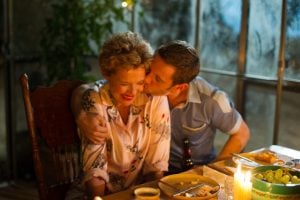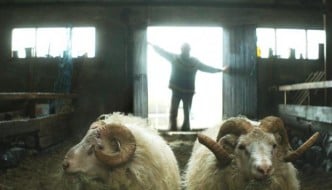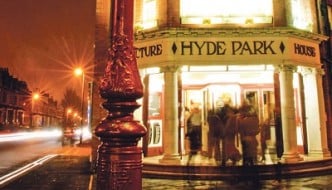
A film so classically beautiful in its cinematic style, Film Starts Don’t Die in Liverpool tells the story of Hollywood sensation Gloria Grahame and her love affair with young aspiring actor Peter Turner during the mid-1970s. A story whose heart beats with love, humility, and tragedy.
Annette Bening was gorgeously fitting for the role. She reflected Gloria Grahame’s multifaceted character with such grace and respectability. Gloria Grahame was another Hollywood star forced into a pretence by the constricting nature of the film industry and its shiny idealised facade. She was a perfectly imperfect woman who was not allowed to be so under the eyes of the Hollywood construct. Constantly under aesthetic pressures, Grahame was known by her fellow actors for being the actress who would stuff cotton under her upper lips to make them appear fuller. She, like many female actresses constrained by the industry, was forced to paper over any cracks of her personality; a guise which inevitably became too much for her. Often typecast as the film noir icon of femme fatale, Grahame made her cinematic debut in Human Desire (1953) and Not as a Stranger (1955). But she was soon pushed out of the Hollywood life style after she tried to disaffiliate herself from this limiting persona in musical films such as Oklahoma! (1955). The industry and its critics were not accustomed to seeing her play anything other than the dangerous and promiscuous seductress, so she was pushed out and returned to a less public life behind the theatre.
But Film Stars Don’t Die in Liverpool is not concerned with the dramas of a Hollywood star, or of the objectification of female Hollywood actresses. The film gets its unusual dramatic power from another source: the personal story of a woman who has lived, loved, and laboured. The audience are undoubtedly exposed to Ms Grahame’s seductive ambiguity, but the film also allows her encompassed vulnerable tenderness to be uncovered. Her relationship with working-class northern lad Peter Turner, played by Jamie Bell, unclothes her humility and geniality. When the two meet in the mid-70s, Peter Turner is a struggling actor renting a room in Liverpool; his neighbour being the infamous Gloria Grahame. The shift from the glamour of the Hollywood lifestyle, to the realism of running through the streets of Liverpool was a common thread which weaved it’s way through the film. The film shifts between two time frames, cutting out Ms Grahame’s return to America in-between: Ms Grahame is simply a woman in love, and the film explores every moment of turmoil that comes with it.
One cannot mention the setting of Liverpool and the Turner household without commenting on Julie Walter’s impersonation of his mother, Bella Turner. She played the humble and genuine mother; a character who oozes with warmth and care that the audience cannot help but feel completely at ease when watching her. Her relationship, too, with Ms Grahame was authentic. There was no cloud of fame which tainted the connection between these women. The relationship was pure. Walters, known for adopting the lovable and edgy role, fell into the character of Bella with complete ease. Yet, like every-time we see Mrs Walters on screen, for me she did it with such sincerity that her characterisation did not feel reused.
The aesthetics of the mise-en-scene fitted the film’s style like a glove. The way the director, Paul McGuigan, managed to ensue the Hollywood film glamour, then, in the next scene, could bring to the screen the familiarity of a family home was so natural. Specific sequences in the film brought across the warmth of the family home. Even small motions of making a brew and having a plate of biscuits out around the kitchen table settled the audience into a familiar place. The shift from the 70s to 80s aesthetic design was done with subtly and loyalty to it’s era. One charming moment that stuck out to me was when Paul and his father went to their local pub. Perhaps it was Paul simply kicking a football back to a group of kids, or the set-up of a father-son spending time together, or that familiar scene of two men sat over a couple of pints in an old English pub that made it so endearing.
The music as well was so fitting to the sequence is was paired with. It brought out the romance; mimicked the apprehension, and reflected the sorrow felt as deeply as within its characters. The music score had the overpowering ability to impact on the audience. It brought life to the romantic scenes when Gloria and Paul were in New York and California; whilst, at the same time, drew out the same feeling of pain the characters felt in the darker moments.
If you’d like to catch Film Stars Don’t Die in Liverpool, have a look at the listings found on homemcr’s website: https://homemcr.org/film/film-stars-dont-die-in-liverpool/
Filed under: Film, TV & Tech
Tagged with: 70s, 80s, Annette Bening, comedy, film, Film Stars Don't Die in Liverpool, Gloria Grahame, Hollywood, Jamie Bell, Julie Walters, liverpool, manchester, romance, True Story



Comments